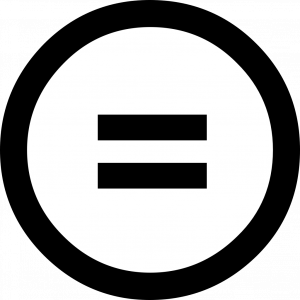Adapting Openly Licensed Content
Key terms from this chapter:
When using existing Creative Commons materials in your work, you should familiarize yourself with the following terms:
- Adaption: Any work based on one or more pre-existing works, and adapting is the process of doing something to a resource that would constitute an adaptation under copyright law. Creative Commons treats some uses of material as adaptations regardless of whether they would usually be considered an adaptation under the law.
- NoDerivatives: Licenses that contain the NoDerivatives term cannot be modified, transformed, or adapted in any way; however, changing the format or medium of the resource is allowed under licenses with this term.
- ShareAlike: Licenses with the ShareAlike term can be freely modified, transformed, and adapted; however, you must license the resulting adaption under identical terms.
- Ported Licenses : Versions of the Creative Commons licenses that have been modified to better conform to specific jurisdictions’ laws. Unported licenses are the international versions of those licenses. Both ported and unported licenses are legally effective everywhere.
What are “Adaptations” and what does it mean to “Adapt” an openly licensed resource?
According to Creative Commons, an adaptation is a work based on one or more pre-existing works. Ordinarily, a modification is only considered an adaptation when it demonstrates sufficient new creativity to be copyrightable. Consequently, activities such as translating a novel or creating a screenplay based on a book are always considered adaptations.
Note: Changing the format or medium is not considered an adaptation under Creative Commons licensing, even when the applicable copyright law would consider it to be an adaptation. This applies to all Creative Commons licenses. For instance, if you needed to make formatting changes to print an online Creative Commons resource, even one with the NoDerivatives term, you may do so, as long you comply with the other terms of the license.
No Derivatives

A resource with the NoDerivatives term in its license cannot be modified, transformed, or adapted in any way. The sole exception to this rule is for changes to the format or medium of the resource, which, as noted above, are allowed under all Creative Commons licenses. If you are unsure if your planned use for material would be considered an adaptation or remix of the original work, you should consider finding a resource with a less restrictive license to avoid potentially violating the NoDerivatives term.
ShareAlike

Resources with the ShareAlike term in their license can be modified, remixed, and adapted by others; however, any new works derived from the original must be licensed under identical terms. For example, if you adapt a work with an Attribution-ShareAlike (CC BY-SA) license, then your new creation must be licensed under the same Attribution-ShareAlike terms. Similarly, suppose the resource was licensed under Attribution-NonCommerical-ShareAlike (CC BY-NC-SA), and you remixed it. In that case, your new creation must also be licensed under Attribution-NonCommerical-ShareAlike terms.
What does Ported and Unported Mean?

The image above is an example of a ported Creative Commons license. Ported licenses operate similarly to the international or unported versions, but they have been adapted to better operate within the legal systems of specific countries. In contrast, unported or international licenses are not associated with any particular jurisdiction. Despite the differences, both the ported and unported versions of the license are intended to be legally effective everywhere.
Unless there are specific considerations that you are looking to address by choosing a ported license, we recommend that you license your work under the international license version 4.0, which, as of writing, is the latest version of Creative Commons licensing.
Previous Chapter I Next Chapter
Media Attributions
- ND © Creative Commons is licensed under a CC BY (Attribution) license
- SA © Creative Commons is licensed under a CC BY (Attribution) license
- Screenshot of Creative Commons New Zealand Port © Creative Commons is licensed under a CC BY (Attribution) license

